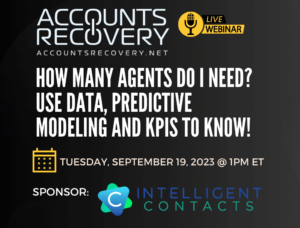PEAK PERFORMANCE SERIES | VIDEO BLOG
How Creating SMART Goals Drives Agents to Peak Performance
A Guide to Creating Peak Performing Agents Using SMART Goals
The Importance of Goal Setting in Contact Centers
Goal setting in contact centers is not just about giving agents something to aim for; it’s about aligning their efforts with the broader objectives of the organization. Clear goals help agents understand their role in achieving customer satisfaction (CSAT) scores and other key performance indicators (KPIs).
Understanding SMART Goals
SMART is an acronym used to guide the setting of objectives, ensuring they are clear and reachable. Each letter in the acronym stands for a specific aspect that should be considered when setting a goal:
Specific
Meaning: The goal should be clear and specific, avoiding vagueness or ambiguity. It should answer the five ‘W’ questions: Who is involved? What do I want to accomplish? Where will it be done? When will it be done? Why am I doing this?
Importance: Specificity helps to focus efforts and clearly define what is to be achieved.
Example: Instead of saying “Improve customer service,” a specific goal would be “Increase customer satisfaction scores by 10% by the end of Q2.”
Measurable
Meaning: The goal should have concrete criteria for measuring progress and success. It should answer questions like: How much? How many? How will I know when it is accomplished?
Importance: Measurable goals allow for tracking progress and staying motivated. They help you know when the objective has been achieved.
Example: “Reduce average customer call wait time to under two minutes.”
Achievable
Meaning: The goal should be realistic and attainable. It should stretch your abilities but remain possible.
Importance: An achievable goal helps to avoid setting yourself up for failure. It should challenge you but also be attainable with the resources and time available.
Example: “Increase the contact center’s call handling capacity by 15% within the next six months through staff training and schedule optimization.”
Relevant
Meaning: The goal should matter to you and align with other relevant goals. It should be worthwhile and fit with the immediate and long-term plans.
Importance: A relevant goal drives the broader objectives forward. It ensures that the goal is beneficial and contributes to the overall direction.
Example: “Implement a new customer feedback system to gain insights for product development, aligning with the company’s goal of product improvement based on customer needs.”
Time-Bound
Meaning: The goal should have a deadline or a time frame. It answers the question: When?
Importance: Setting a time limit creates a sense of urgency and prompts action. It helps in prioritizing tasks and managing time effectively.
Example: “Complete the integration of the new customer relationship management software by the end of Q3.”
Creating SMART Goals for Contact Center Agents
Adherence to Schedule: Aiming for a high percentage of schedule adherence helps reduce wait times and improve CSAT scores.
Productivity Scores: Encouraging agents to maintain a high productivity score ensures efficient use of time and resources.
First Call Resolution: Setting targets for resolving customer issues on the first call enhances customer experience and efficiency.
Skill Development: Allowing agents to set personal development goals, such as learning a new software or enhancing communication skills, contributes to their growth and the center’s capabilities.
Challenges in Goal Setting
Individual Differences: Recognizing that agents have different strengths and weaknesses is key to setting personalized goals.
Changing Dynamics: The fast-paced nature of contact centers means goals may need to be adjusted over time.
Measuring and Managing Goals
This process involves:
Consistent Measurement: Using standardized metrics to assess performance ensures fairness and clarity.
Regular Reviews: Periodic check-ins help agents understand their progress and areas for improvement.
Recognition and Rewards: Acknowledging achievements reinforces positive behaviors and motivates agents.
Featured Topics
ARM Industry Topics
Healthcare Industry Topics
Contact Center Solutions & Topics
Stealth Voicemail
Payment Topics & Solutions
Compliance & Data Security
Want to know more about the tools used in Peak Performance Contact Centers?
Our enterprise-level contact center software is affordable for contact centers of all size! Your next step is just a button click away!
Reflection Questions
These questions are designed to encourage reflection and practical application of the strategies discussed, helping supervisors to hire, train, coach, and inspire agents effectively.
- How can your contact center better implement SMART goals to enhance agent performance and customer satisfaction?
- What strategies can be implemented to ensure goals are both ambitious and realistic for each agent?
- How does your current goal measurement process align with the SMART criteria, and what improvements can be made?
- Reflect on the balance of positive and constructive feedback in your center.
- How can you ensure that agents receive adequate recognition for their successes?
- In what ways can you adapt and update goals to reflect changing circumstances or new insights in your contact center?
Featured Topics
ARM Industry Topics
Healthcare Industry Topics
Contact Center Solutions & Topics
Stealth Voicemail
Payment Topics & Solutions
Compliance & Data Security
Resources
Related Articles & Downloads
CASE STUDY








